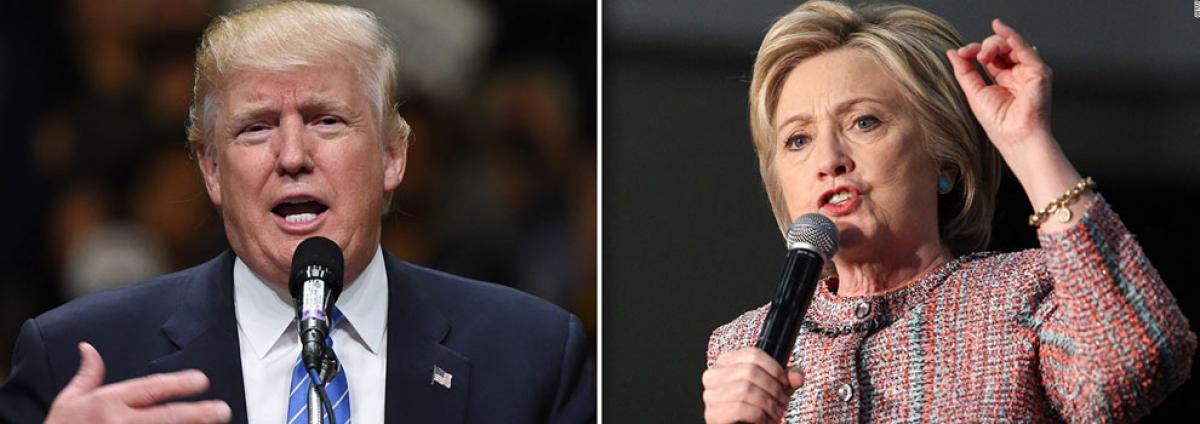Live
- Robust Security Arrangements for TSPSC Group-2 Exams in Jogulamba Gadwal
- National Lok Adalat Resolves 3387 Cases at Alampur Court
- ‘Get Set, Grow Summit 2024’ Focuses on Digital Detox for Families
- Stokes motivates his team to put in extra effort, says England pacer Potts
- From overcoming setbacks to leading India in U19 Women’s Asia Cup, Niki Prasad's amazing journey
- Driving Enterprise Security: Inside Venkata Reddy Thummala’s Leadership Journey
- Constitution debate: PM Modi hails 'Nari Shakti'; makes strong pitch for 'United Bharat’
- Abhijeet Bhardwaj: Revolutionizing Enterprise Analytics with Innovation and Expertise
- Bihar: Inquiry initiated against principal who went to buy veggies during school hours
- Press Sri Lankan Prez for release of Indian fishermen: TN Cong MP to EAM Jaishankar
Just In

Democrats\' path to retaking the Senate majority narrowed Tuesday as Republicans held onto key seats in North Carolina, Indiana and Florida.
Washington: Democrats' path to retaking the Senate majority narrowed Tuesday as Republicans held onto key seats in North Carolina, Indiana and Florida.
Democrats grabbed a Republican-held seat in Illinois, but as Republicans defended a slim 54-46 majority in an unpredictable election year, key races in Missouri, New Hampshire, Pennsylvania and Nevada remained too close to call.
In North Carolina, Democrats had high hopes of unseating entrenched GOP incumbent Sen. Richard Burr, who infuriated even his own party with his laidback campaign style. But in the end he had little trouble holding off the challenge from Democrat Deborah Ross, a former state legislator and director of the North Carolina ACLU.
In Illinois, GOP Sen. Mark Kirk had long been considered the most endangered Republican incumbent, as he faced a strong challenger in a state that favors Democrats in presidential election years. Democratic Rep. Tammy Duckworth, a double-amputee Iraq war veteran with a compelling personal story, ousted Kirk.
In Indiana, GOP Rep. Todd Young beat former Democratic senator and governor Evan Bayh, who mounted a much-ballyhooed comeback bid, but wilted under scrutiny.
Read More: Trump edges past Clinton in battle for US Presidency
And in Florida, GOP Sen. Marco Rubio beat Democratic Rep. Patrick Murphy, giving Rubio a platform from which he could mount another bid for president in 2020. The outcome was not unexpected since Murphy had been abandoned by his own party in the final weeks of the campaign, but polls had tightened heading into Election Day.
In New York, meanwhile, Sen. Chuck Schumer, the Democrats' leader-in-waiting for a new Congress, easily won re-election. Results elsewhere would tell if Schumer leads a Democratic majority in the Senate next year, or a minority when he replaces retiring Nevada Sen. Harry Reid in the leader's role.
"I hope the voters of America will bless us with a Democratic majority in the Senate," Schumer told cheering supporters in Manhattan.
GOP incumbents around the country faced energized Democratic challengers trying to oust them in costly and caustic battles shadowed every step of the way by the polarizing presidential race between Republican Donald Trump and Democrat Hillary Clinton.
In GOP-held Missouri and New Hampshire, it looked like it could go either way as voting progressed. The races were also close in Pennsylvania and Nevada, the one Democratic-held seat that was hotly contested this election.
Democrats need to pick up four seats to take the majority if Clinton wins the White House and can send her vice president to cast tie-breaking votes in a 50-50 Senate. Democrats would need to pick up five seats if Trump wins.
The GOP retook the majority just two years ago. And even though control of the Senate is likely to be razor-thin whichever party ends up on top, the advantages of being in the majority are significant. The controlling party holds the committee chairmanships, sets the legislative agenda and runs investigations. First up is likely to be a nominee to fill the vacancy on the Supreme Court.
In addition to Illinois, Democrats were counting on a likely pick-up in Wisconsin, though polls tightened in recent weeks in favor of GOP Sen. Ron Johnson.
Reid was retiring after five terms and trying to engineer a Democratic successor in Nevada. Democrats were optimistic that a strong Latino vote, and Republican hopeful Rep. Joe Heck's stumbles with Trump, would keep Nevada in their column.
Missouri, like North Carolina, was a GOP-friendly state that turned unexpectedly competitive as incumbent Republican Sen. Roy Blunt seemed caught unawares by the nation's restless mood.
Throughout the campaign the Senate races provided moments of drama, not least as GOP candidates grappled with sharing a ticket with Trump. That tripped up Sen. Kelly Ayotte in New Hampshire after she asserted at one point that Trump could "absolutely" be a role model for the nation's youth.
In Nevada, Heck un-endorsed Trump to boos after audio emerged of Trump boasting of groping women, but later seemed to backtrack. He ended the campaign refusing to say whether or not he'd vote for Trump. Pennsylvania GOP Sen. Pat Toomey, too, kept voters in suspense until the 11th hour before disclosing late Tuesday that he voted for Trump.
There were poignant moments, too.
Arizona GOP Sen. John McCain, at age 80, was seeking his sixth term in quite possibly his final campaign. The 2008 GOP presidential nominee, expected to be re-elected without much difficulty despite early predictions of a competitive race, struck a reflective note in a final pre-election rally.
"While as Yogi Berra said, 'I hate to make predictions, especially about the future,' I'm not sure how many more I have in me," McCain said.

© 2024 Hyderabad Media House Limited/The Hans India. All rights reserved. Powered by hocalwire.com







